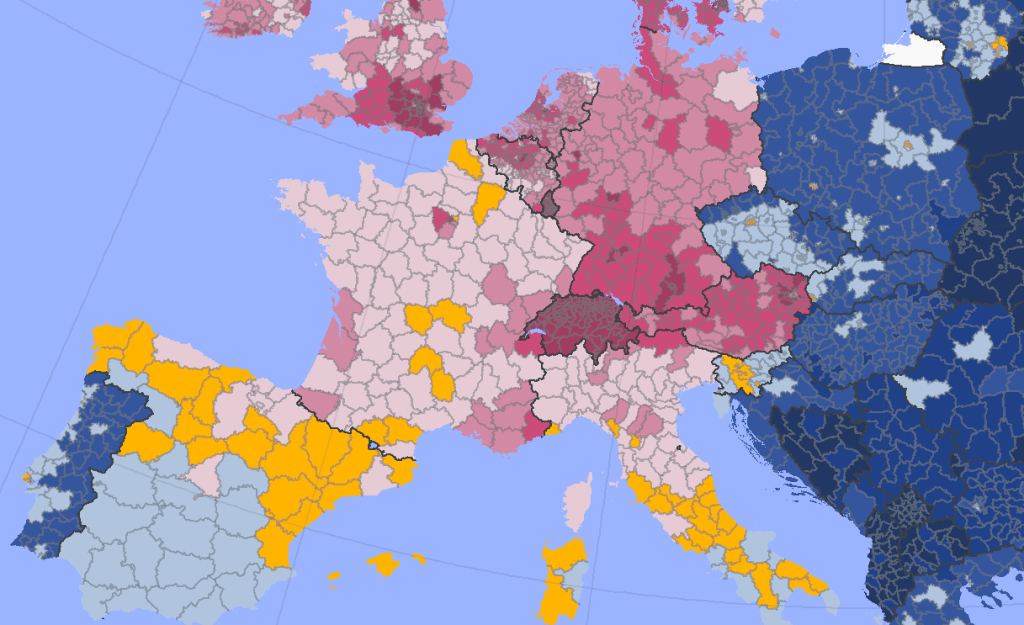Artificial intelligence (AI) helps businesses find the competitive edge they’re seeking by extracting more value from data. By unifying and structuring this information across operations, AI has the power to embed innovation at the very heart of the business. In this way, when combined with predictive (retail) analytics, AI is bringing economic benefits across industries, with business executives expecting a positive impact on growth (90%), productivity (86%), innovation (84%) and job creation (69%) thanks to the technology, according to research by The Economist.
In my view, this is going to be the year where we stop talking about AI in business and start solving problems that happen to be powered by this technology.
AI enables retailers to stay ahead of consumer purchasing trends
The global COVID-19 pandemic has triggered rapid changes in consumer purchasing with GfK’s International Consumer Pulse survey (May 2020) showcasing that 83% of consumers said their shopping behavior has ‘completely changed’ last year.
Predictive analytics are indispensable to a retail sector trying to understand consumer needs and desires in a volatile and changing market. AI predictive insights help retailers to retain customers as they transition from brick-and-mortar stores to digital channels, chatbots reduce overheads and solve issues faster, recommendations and personalization are increasingly automated, and AI builds customized strategies to drive sales and inform marketing.
While Amazon’s recommendation system was an early high-profile example of predictive analytics, suggesting other purchases you might like to make based on what you’ve bought is far from the only way the retail giant uses AI. For speedy fulfillment that includes same-day delivery, Amazon relies on predictive analytics to track and predict demand, and AI analysis also drives up to 2.5 million product price changes every day helping Amazon balance the need to undercut competitors and squeeze maximum profit from every sale.
Outdoor clothing retailer The North Face uses AI to innovate its purchase process through conversational recommendations. Instead of trawling search results, customers can start a conversation with an AI shopping assistant who asks questions such as where, when and for what activities the clothing is for. It then combines this information with external data, such as previous user preferences, social media sentiment, the weather, even the user’s gender and narrows the search to six products that might be suitable. After just two months, its sales conversions reached 75%.
Tech brands are also jumping onto AI to innovate the customer experience. Samsung’s SmartThings Cooking service uses AI to recommend meals for the week, crafting shopping lists with the relevant ingredients and connecting consumers with supermarkets from its Family Hub refrigerator or their mobile phones. The company also uses machine-learning in its televisions to analyze content and automatically turn low-resolution images into 8K picture quality, as well as enabling the TV’s sound to be optimized to specific scenes.
AI drives innovation in technology convenience and personalization
The application of AI in household appliances, electronics and personal health devices is vast. Access to comprehensive data on user behavior from their shopping patterns to their lifestyle choices and health, means companies have a goldmine of consumer information to fuel the innovation process. AI can help businesses cut through the noise to discover fertile opportunities for new product features or lines.
LG’s intelligent washing machine automatically selects the best cycle based on the weight and type of fabric, something it is able to achieve thanks to the analysis of 20,000 different washing patterns. In the wellbeing sector, companies such as Sensoria Fitness provide users with in-app AI fitness coaching that uses performance analytics to improve running routes or reduce the risk of injury. For example, by telling you not just how far and how fast you’re running, but also how well you’re running.
AI predictive analytics spot supply chain problems before they happen
A huge 94% of the Fortune 1000 reported supply chain disruption due to coronavirus. As suppliers seek accurate forecasts and retailers try to forge new partnerships to meet fluctuating demand, AI can provide some much-needed certainty and support. Little wonder then, that 60% of supply chain professionals plan to use AI, and 82% will employ predictive analytics within the next five years.
The logistics industry produces an enormous amount of data, which is only growing as more IoT sensors are deployed. AI and machine learning can extract value from that data, simplifying and standardizing how data is collected and shared, and automating manual processes. AI also provides actionable intelligence based on analysis, so it may speed up delivery where it sees a spike in demand emerging, switch suppliers where it sees a potential roadblock developing or spot lucrative new markets through identifying emerging trends.
DHL uses machine learning to spot supply chain problems before they arise. It monitors about 140 risk categories including financial, environmental and social factors like crime, quality defects and capacity constraints. Using machine learning, the logistics company analyzes data from up to 30 million posts from over 300,000 online and social media sources to detect possible supply chain disruptions that could cause brand financial losses or reputational damage.
gfknewron can power your innovation strategy
Every organization has an eye on the horizon and tries to anticipate what customers need next. Access to comprehensive pools of data that AI can transform into actionable and interpretable insights now means every company and every team can become innovators.
GfK’s AI technology insights platform gfknewron deep dives into purchasing data and market trends to tell you which markets to enter, what consumers really want and which innovations actually matter. This deep understanding of the market, psychology and consumer behavior is tailored for individual businesses. We know what genuinely matters to people, so we can help our clients make innovation decisions around what to create next.
Using AI predictive insights, companies can quickly spot challenges and opportunities to kick-start research and development, then test and iterate solutions in a fast and scalable manner that has never before been possible.




